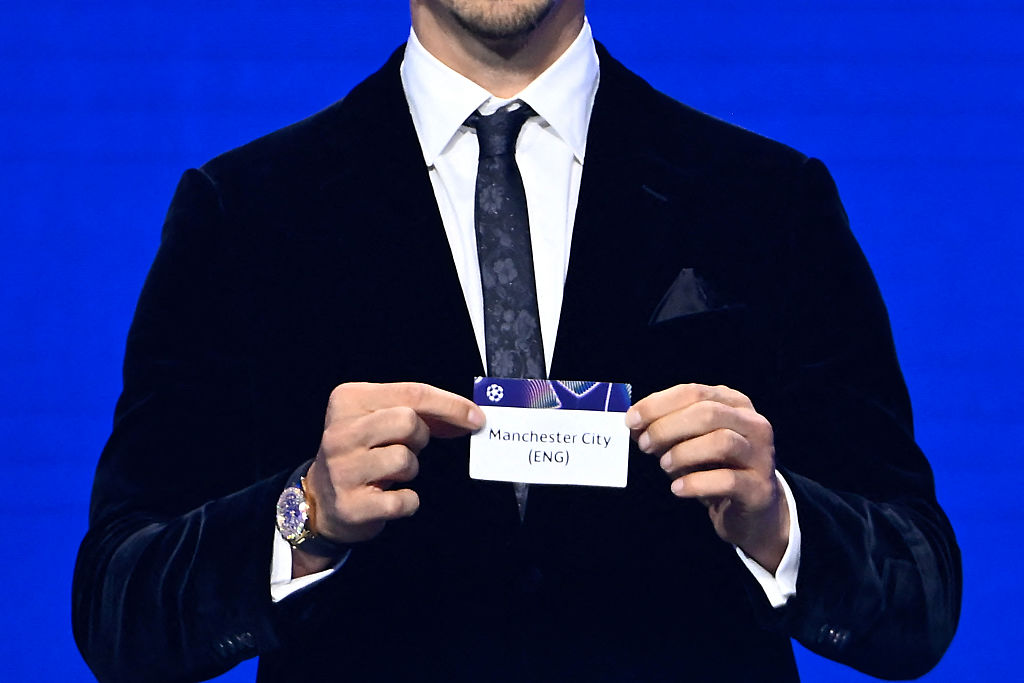
Champions' average age
Some European leagues have developed a reputation for giving young players a chance, while others are seen to prioritise experience over youth. But are such perceptions borne out by the numbers?
In this slideshow, we use data from the CIES Football Observatory to rank the average age of the champions from various European leagues between 2009 and 2017. Only the top 15 countries in UEFA’s coefficient are included.
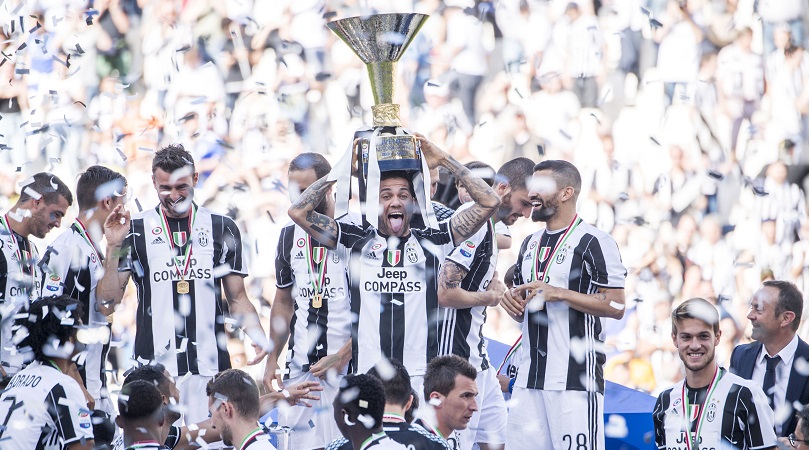
15. Italy, average age 28.51
Champions: Juventus (6), Inter (1), Milan (1)
Serie A has long been renowned as a league whose clubs are more likely to give an opportunity to a grizzled veteran than a fresh-faced teenager, and the statistics from the last eight seasons do little to disprove that notion.
Jose Mourinho relied upon experienced stars such as Javier Zanetti, Marco Materazzi and Diego Milito when his Inter outfit finished on top of the pile in 2009/10; a year later, 30-somethings Gennaro Gattuso, Clarence Seedorf and Alessandro Nesta helped Milan claim the crown. Juventus' recent dominance, meanwhile, owes much to the contribution of defensive stalwarts Giorgio Chiellini, Andrea Barzagli and Gianluigi Buffon, who have all been around the block more often than a lost Uber driver.
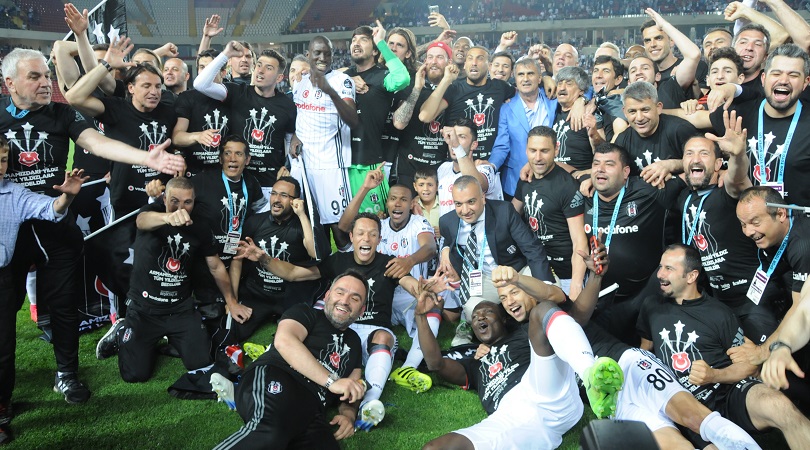
14. Turkey, 27.15
Champions: Galatasaray (3), Besiktas (2), Fenerbahce (2), Bursaspor (1)
It’s rare for a transfer window to go by without an ageing former Premier League star rocking up in Turkey. Robin van Persie, Didier Drogba and Emmanuel Eboue are among those who have made the move east in search of an Indian summer, with Ryan Babel and Martin Skrtel both currently plying their trade in the Super Lig as they wind down their careers.
That doesn't necessarily mean that all Turkish champions are ageing. But their average is second only to Italy in this list, and, well, you can't argue with facts.

13. England, 26.91
Champions: Chelsea (3), Manchester City (2), Manchester United (2), Leicester (1)
In the aftermath of England's success at the Under-20 World Cup, Toulon Tournament and UEFA Under-19 Championship in 2017, there has been plenty of debate over the difficulties facing homegrown young players at Premier League clubs. The figures from recent campaigns reinforce the suspicion that England's elite outfits prefer the finished product to an up-and-coming prospect, with the squads of the last eight champions having an average age of 26.91.
Chelsea have won three titles in that time and continue to be criticised for the lack of first-team opportunities given to their youngsters, with Manchester City also heavily reliant on an experienced core when they won the league in 2011/12 and 2013/14.
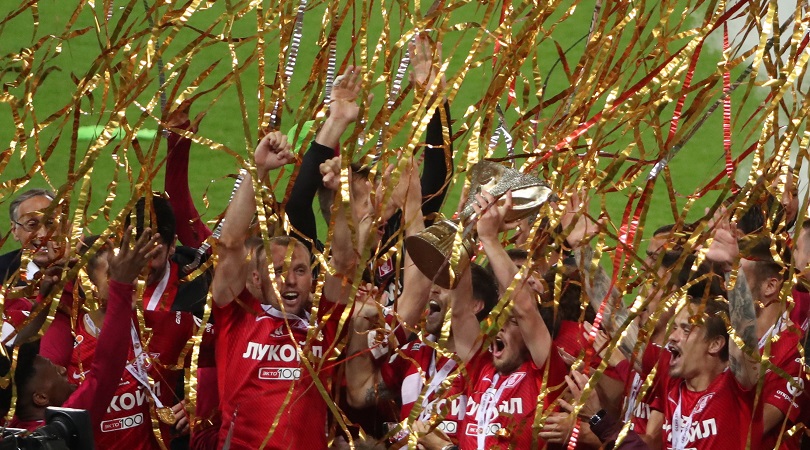
12. Russia, 26.75
Champions: Zenit Saint Petersburg (3), CSKA Moscow (3), Spartak Moscow (1), Rubin Kazan (1)
Zenit Saint Petersburg and CSKA Moscow have each won three titles in the last eight years, but Spartak Moscow remain the most successful side in Russian top-flight history following their 22nd triumph in 2016/17.
All three clubs, as well as Rubin Kazan in 2009, have usually demonstrated a preference for older, more experienced players. Igor Akinfeev, Sergei Ignashevich and Vasili Berezutski have long been key to CSKA’s success, while Vyacheslav Malafeev, Danny and Andrey Arshavin were all over 30 when Zenit triumped in 2014/15.
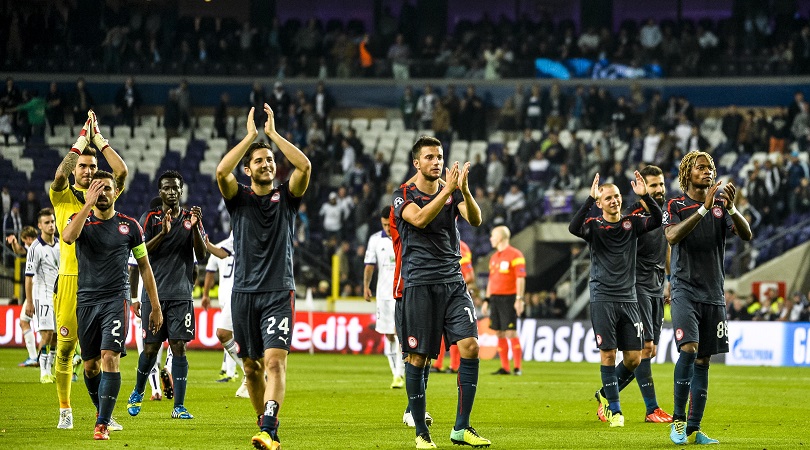
11. Greece, 26.61
Champions: Olympiacos (7), Panathinaikos (1)
Olympiacos’ monopolisation of the Greek Superleague shows no signs of ending any time soon, with the Kokkinoi having now won 19 of the last 21 titles. Panathinaikos briefly broke their run in 2009/10, but since then Olympiacos – whose dominance owes much to Champions League prize money – have added another seven championships to their trophy cabinet.
The Athens-based outfit have always sought a balance between youth and experience, hence an average age of 26.61 for Greek champions since 2009.
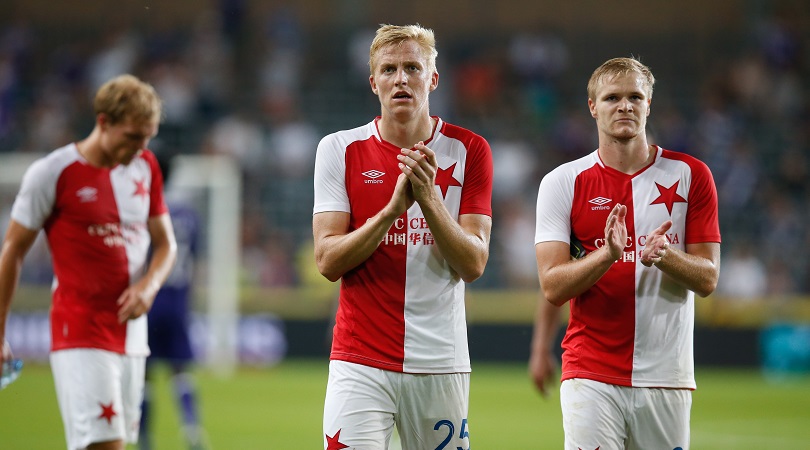
10. Czech Republic, 26.6
Champions: Viktoria Plzen (4), Sparta Prague (2), Slavia Prague (1), Slovan Liberec (1)
Slavia Prague celebrated their first league title in eight years in 2016/17, when their success denied Viktoria Plzen a third championship in a row. Sparta Prague and Slovan Liberec have also finished on top of the pile in the last eight campaigns, making the Czech First League one of the most competitive around.
The division’s average age for champions is perhaps a little higher than might be expected for one of Europe’s less powerful domestic competitions, but it’s possible that the competitive nature of the First League persuades clubs to assemble squads capable of winning in the here and now.
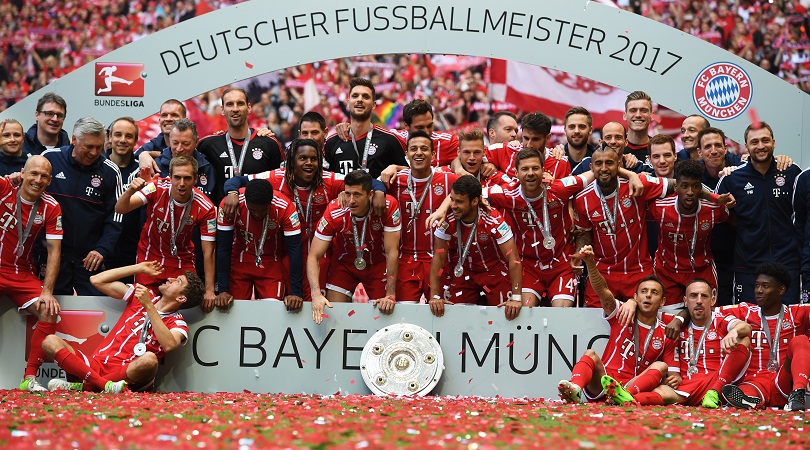
9. Germany, 26.47
Champions: Bayern Munich (6), Borussia Dortmund (2)
Bayern Munich are among Europe’s superclubs and haven’t been shy in creaming off the rest of the Bundesliga’s talent throughout the eight years covered here, but they’re also a side who have always been keen to bring youngsters through their academy – a path taken by Joshua Kimmich, David Alaba and Toni Kroos in the last decade or so.
That helps explain why German champions’ average age is lower than that of Italy and England, with Borussia Dortmund also willing to give prospects a chance during their triumphant seasons under Jurgen Klopp. Both clubs have had their fair share of experienced players too, though, hence the Bundesliga’s ninth-place ranking.
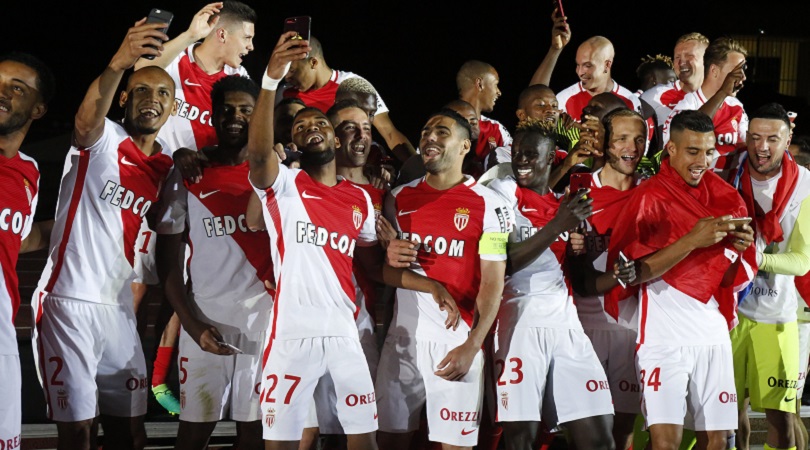
8. France, 26.43
Champions: PSG (4), Monaco (1), Lille (1), Marseille (1), Montpellier (1)
With five different champions, France has arguably been the most competitive of Europe’s top 15 leagues in the last eight seasons. That trend is unlikely to continue given the depth of PSG’s pockets, which led to the capital club smashing the world-record transfer fee when they signed Neymar in summer 2017.
That transfer was made partly in response to Monaco’s title triumph the previous season, a fantastic achievement to which several youngsters were essential. Overall, though, French champions rank near the middle of our average age list.
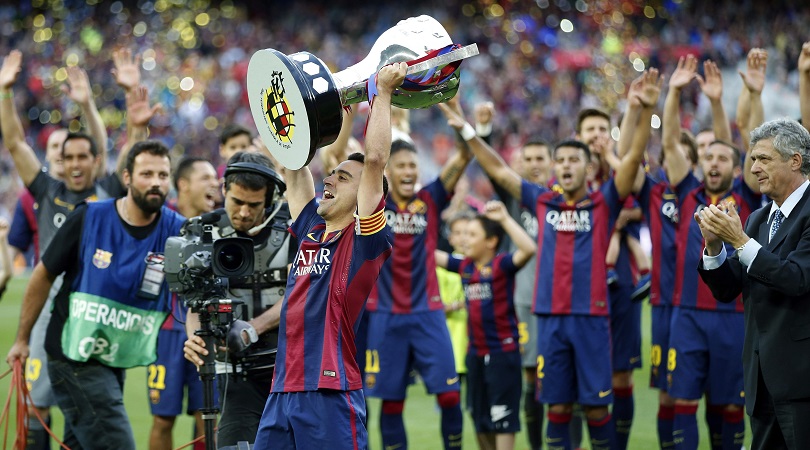
7. Spain, 26.25
Champions: Barcelona (5), Real Madrid (2), Atletico Madrid (1)
A settled, experienced team brought Real Madrid their first La Liga crown in five years in 2017/18, with 30-somethings Cristiano Ronaldo, Luka Modric and Sergio Ramos all integral to los Blancos’ success. Atletico Madrid’s title-winning team of 2013/14 also featured a number of experienced operators in Gabi, Tiago Mendes and David Villa.
Spanish champions’ overall average age in the last eight years is brought down by Barcelona, particularly in the Pep Guardiola era when Sergio Busquets, Pedro Rodriguez and Lionel Messi all played prominent roles in their early 20s.

6. Ukraine, 26.05
Champions: Shakhtar Donetsk (6), Dynamo Kyiv (2)
Despite the upheaval of having to relocate from Donetsk to Lviv and then Kharkiv due to the War in Donbass, Shakhtar have remained Ukraine’s preeminent outfit in the last few years, with Dynamo Kyiv’s back-to-back titles in 2014/15 and 2015/16 the only time they’ve been overhauled at the top of the division in the last eight seasons.
Shakhtar have targeted the Brazilian market in recent years, signing the likes of Willian, Fernandinho and Douglas Costa at a young age and later moving them on to bigger European leagues. That helps explain the relatively low average age of Ukrainian champions, although Shakhtar have called upon more experienced players such as Darijo Srna and Oleksandr Kucher.
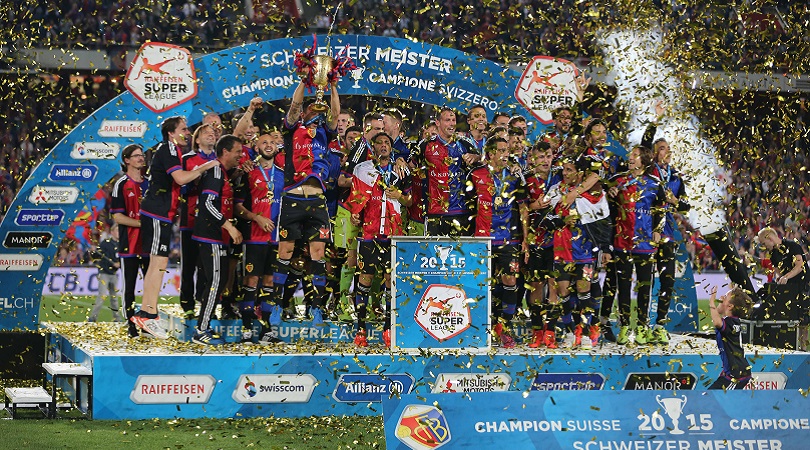
5. Switzerland, 25.66
Champions: Basel (8)
The Swiss Super League is the only division in this list which has had the same champion in the last eight seasons. The 2008/09 campaign was the last time another side lifted the trophy – Zurich took the crown that year – which means Switzerland’s average of 25.66 belongs exclusively to Basel.
Despite their domestic dominance, Basel are still some way down the overall European pecking order, which means they have had to remain diligent when it comes to developing youngsters and moving them on for a profit. Xherdan Shaqiri, Granit Xhaka and Mohamed Elneny were all sold by the club during the period covered.
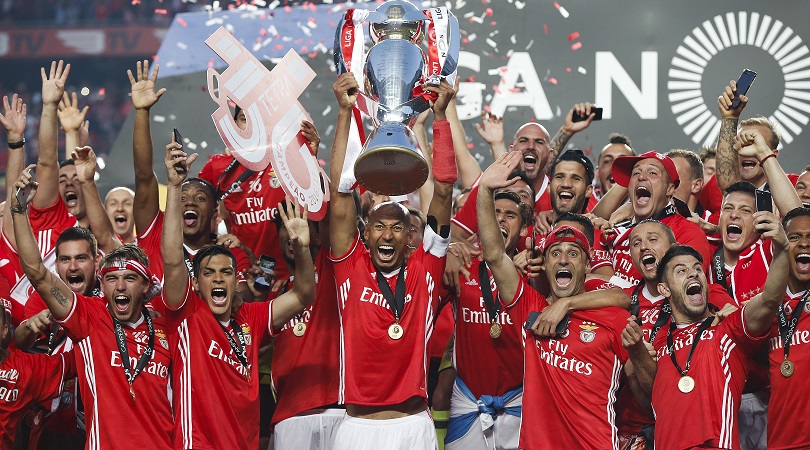
4. Portugal, 25.45
Champions: Benfica (5), Porto (3)
Benfica and Porto have shared the last 15 Portuguese titles between them, with the former currently on top having claimed the crown in each of the last four seasons. Both clubs have married domestic success with a business model which revolves around signing young players on the cheap and selling them on after a few years of development.
Several high-profile players have passed through the gates of the Estadio da Luz or the Estadio do Dragao in the last eight years, including James Rodriguez, Alex Sandro and David Luiz. Benfica and Porto certainly don’t disregard experience, but they’ve continually shown a willingness to give young players a chance.
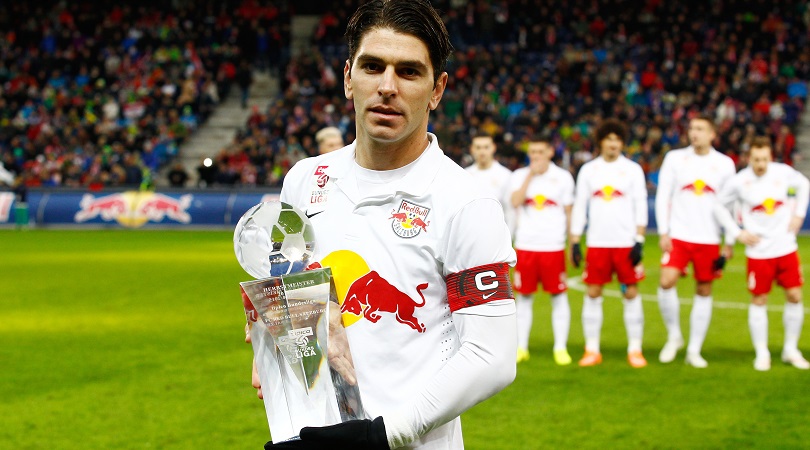
3. Austria, 25.31
Champions: Red Bull Salzburg (6), Sturm Graz (1), Austria Wien (1)
Jonathan Soriano (pictured) won four Austrian Bundesliga champions during his five years at the club, before departing for Beijing Guoan in 2017. The ex-Barcelona man arrived at Red Bull Salzburg in his mid-20s, but the club tend to prefer signing players who are still in the infancy of their careers, such as Naby Keita (19 years old in 2014) and Dayot Upamecano (16 in 2015).
Salzburg have thus been dependent on numerous up-and-coming footballers during their recent period of success, while Sturm Graz (2010/11) and Austria Wien (2012/13) also provided a home to several youngsters during their own title-winning campaigns.

2. Belgium, 24.98
Champions: Anderlecht (5), Gent (1), Genk (1), Club Brugge (1)
Belgium are currently blessed with a golden generation at national team level, with a side featuring the talents of Eden Hazard, Kevin De Bruyne and Jan Vertonghen expected to challenge for the World Cup in Russia this summer.
It’s possible that the emergence of such world-class performers has prompted Belgian clubs to pay even closer attention to their academies, particularly as Hazard, Radja Nainggolan, Toby Alderweireld and Yannick Carrasco all moved overseas before starting their professional careers. Jupiler League champions have had an average age of less than 25 since 2009, which ranks them second in this list.
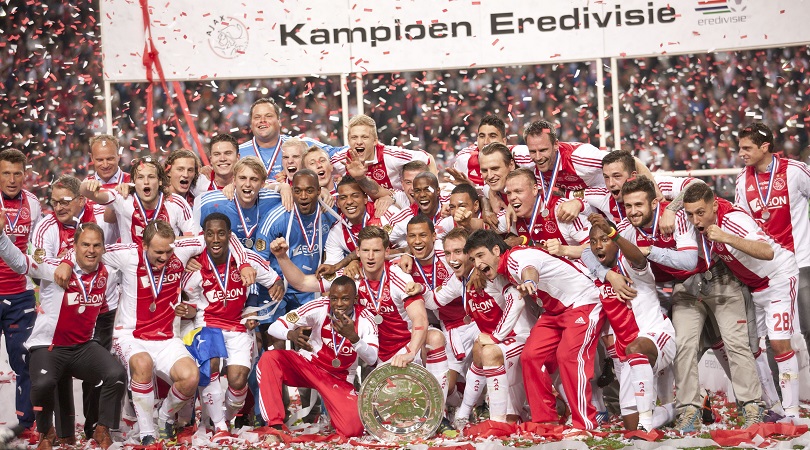
1. Netherlands, 24.19
Champions: Ajax (4), PSV (2), Feyenoord (1), Twente (1)
Eredivisie sides have always been adept at blooding young players, but the growing inequality of European football has seen the league’s clubs place even more stock in youth development in the last few years.
Even domestic giants such as Ajax and PSV have become reliant on the funds generated when a promising prospect is sold overseas. It’s therefore no surprise that the Netherlands tops this list with an average age of just 24.19 in the last eight years, during which time players such as Christian Eriksen, Toby Alderweireld and Memphis Depay have won the Dutch league before seeking pastures new.
Greg Lea is a freelance football journalist who's filled in wherever FourFourTwo needs him since 2014. He became a Crystal Palace fan after watching a 1-0 loss to Port Vale in 1998, and once got on the scoresheet in a primary school game against Wilfried Zaha's Whitehorse Manor (an own goal in an 8-0 defeat).
 Join The Club
Join The Club











